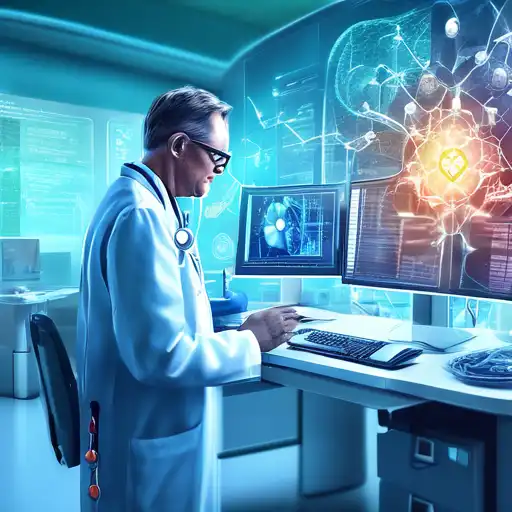The Transformative Impact of Data Science on Healthcare
In the modern era, data science has emerged as a revolutionary force across various sectors, with healthcare being one of the most significantly impacted. The integration of data science into healthcare is transforming how we diagnose, treat, and prevent diseases, making healthcare more personalized, efficient, and accessible.
Personalized Medicine
One of the most notable contributions of data science to healthcare is the advent of personalized medicine. By analyzing vast datasets, including genetic information, data scientists can identify patterns and predict individual responses to treatments. This approach enables healthcare providers to tailor treatments to the unique genetic makeup of each patient, improving outcomes and reducing side effects.
Predictive Analytics for Preventive Care
Data science is also revolutionizing preventive care through predictive analytics. By leveraging historical and real-time data, healthcare professionals can identify at-risk patients and intervene before conditions worsen. This not only saves lives but also reduces healthcare costs by preventing expensive emergency treatments and hospitalizations.
Enhancing Drug Development
The drug development process is notoriously time-consuming and costly. However, data science is streamlining this process by enabling researchers to analyze chemical and biological data more efficiently. Machine learning algorithms can predict how different compounds will behave, significantly speeding up the discovery of new drugs and therapies.
Improving Healthcare Accessibility
Data science is breaking down barriers to healthcare accessibility. Through telemedicine and mobile health apps, patients in remote or underserved areas can receive quality care. Data analytics also helps in optimizing healthcare resources, ensuring that they are allocated where they are needed most.
Challenges and Ethical Considerations
Despite its benefits, the integration of data science into healthcare is not without challenges. Issues such as data privacy, security, and ethical use of patient information are of paramount importance. It is crucial for healthcare providers and data scientists to work together to address these concerns, ensuring that the benefits of data science are realized without compromising patient trust.
In conclusion, data science is playing a pivotal role in transforming healthcare. From personalized medicine to predictive analytics and beyond, the possibilities are endless. As technology continues to evolve, the potential for data science to further revolutionize healthcare is immense, promising a future where healthcare is more effective, efficient, and accessible to all.
